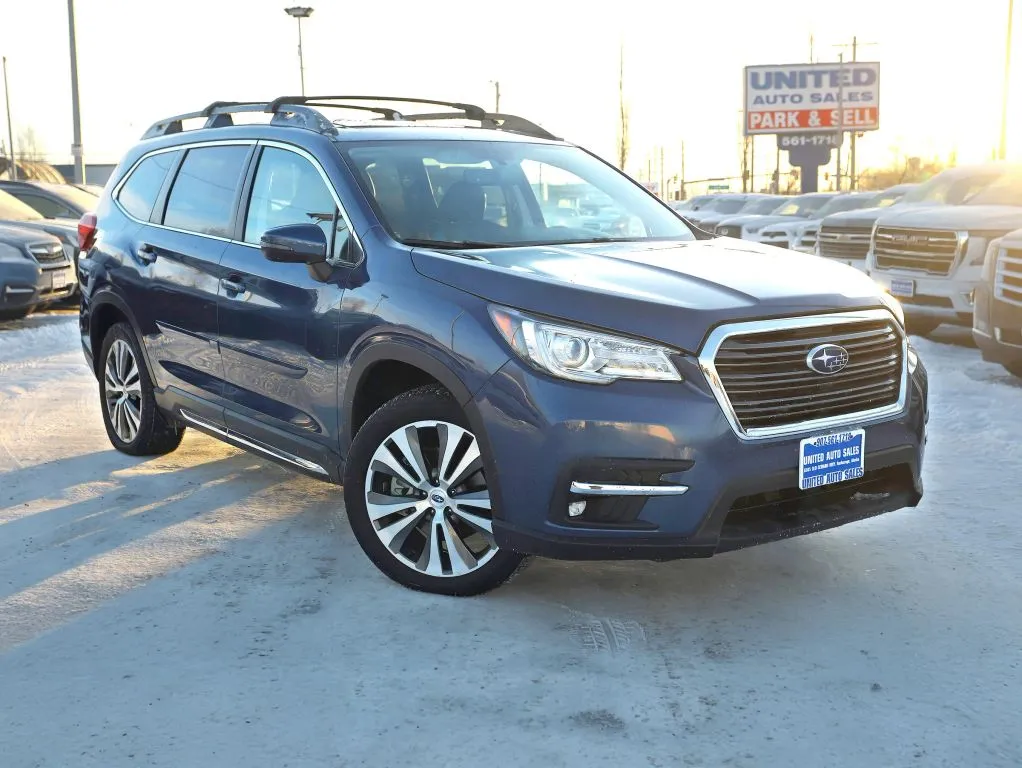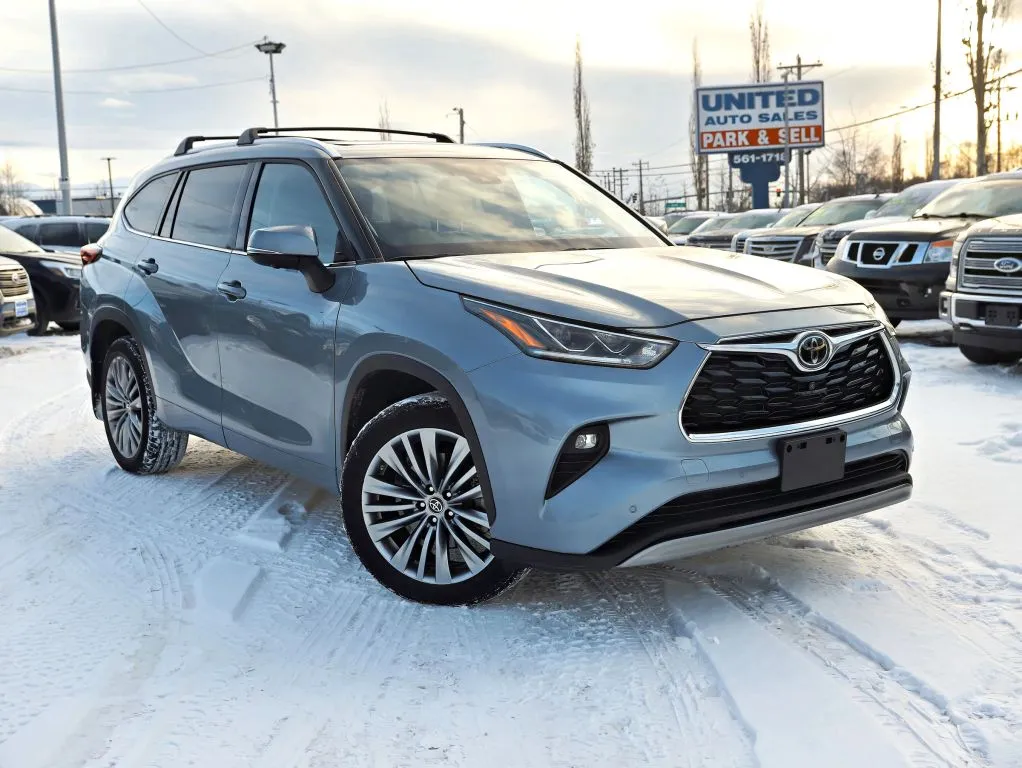11 Best Used Cars for Obese Drivers
Table of Contents
- 11 Top Used Cars for Obese Drivers
- 1. Chevrolet Suburban
- 2. Ford Expedition
- 3. Toyota Sienna
- 4. Honda Odyssey
- 5. Kia Telluride
- 6. Toyota Highlander
- 7. Ford Explorer
- 8. Chevrolet Tahoe
- 9. Subaru Ascent
- 10. Dodge Grand Caravan
- 11. Ford Flex
- Tips for Buying a Used Car for Obese Drivers
- Test Drive
- Inspecting Interior Space
- Reviewing Weight Capacity
- Evaluating Safety Features
- Maintenance History
- Conclusion
- Frequently Asked Questions (FAQs)
- 1. What cars are best for bigger people?
- 2. Is there a weight limit for cars?
- 3. How much weight can an SUV hold?
- 4. What happens if I go over the weight limit in my car?
Choosing the right vehicle is crucial for ensuring comfort, safety, and accessibility, especially for obese drivers. The best used cars for obese drivers offer ample space, supportive seating, and advanced safety features tailored to meet these unique needs. Whether you're looking for a spacious SUV, a reliable minivan, or a versatile crossover, finding the perfect fit can significantly enhance your driving experience.
In this guide, we'll explore the top used cars that cater specifically to the requirements of obese drivers.
11 Top Used Cars for Obese Drivers
1. Chevrolet Suburban
.jpg)
The Chevrolet Suburban is a full-size SUV renowned for its spacious interior and robust performance, making it ideal for obese drivers seeking comfort and ample space.
Key Features
- High weight capacity
- Multiple seating configurations
- Modern safety features like automated emergency braking and lane departure warning
Pros: Exceptional cargo space, powerful engine options, strong towing capacity.
Cons: Lower fuel efficiency and large size may be challenging in tight urban areas.
2. Ford Expedition
.jpg)
The Ford Expedition offers a blend of power and comfort with a roomy cabin and user-friendly technology, suitable for drivers needing extra space.
Key Features
- EcoBoost engine options
- Spacious seating
- High-tech entertainment system
- Safety features like blind-spot monitoring
Pros: Smooth ride, legroom, versatile cargo space.
Cons: Fuel economy could be better and higher price range.
3. Toyota Sienna
.jpg)
The Toyota Sienna is a minivan that stands out for its reliability and spacious interior, perfect for obese drivers who prioritize ease of access and comfort.
Key Features
- Sliding doors
- Available hybrid model for better fuel efficiency
- Roomy seating with adjustable configurations
Pros: Excellent reliability, efficient hybrid option, easy entry and exit.
Cons: Less sporty handling, and higher initial cost for hybrid models.
Also Read: 13 Best Used Cars For Tall Drivers
4. Honda Odyssey
.jpg)
The Honda Odyssey offers a versatile and comfortable interior with advanced safety features, making it a top choice for obese drivers.
Key Features
- Magic Slide second-row seats
- Ample legroom
- Multiple USB ports
- Comprehensive safety suite
Pros: Highly configurable seating, reliable performance, strong safety ratings.
Cons: Less cargo space when the seats are up; interior design may not appeal to everyone.
5. Kia Telluride

The Kia Telluride is a midsize SUV praised for its luxurious interior and spacious seating, suitable for obese drivers seeking comfort and style.
Key Features
- High-quality interior materials
- Ample headroom and legroom
- Advanced safety and entertainment features
Pros: Stylish design, comfortable seating, strong safety features.
Cons: Limited availability due to popularity, slightly higher price range.
6. Toyota Highlander

The Toyota Highlander offers a reliable and comfortable ride with ample space and advanced safety features, making it ideal for obese drivers.
Key Features
- Available hybrid engine
- Spacious interior
- User-friendly technology
- Strong safety ratings
Pros: Excellent reliability, efficient hybrid option, comfortable seating.
Cons: The Interior can feel crowded in the third row, and not as powerful as some competitors.
7. Ford Explorer
.jpg)
The Ford Explorer combines a spacious interior with powerful engine options and modern technology, catering well to obese drivers.
Key Features
- Multiple engine choices, including turbocharged options
- Spacious cabin
- Advanced safety systems
Pros: Versatile seating configurations, strong performance, comprehensive tech features.
Cons: Fuel economy is average, and higher trim levels can be expensive.
8. Chevrolet Tahoe
.jpg)
The Chevrolet Tahoe is a robust full-size SUV known for its spacious interior and strong performance, suitable for obese drivers needing ample space.
Key Features
- Powerful V8 engines
- Spacious seating
- Advanced safety and entertainment systems
Pros: Ample cargo space, strong towing capacity, and comfortable ride.
Cons: Low fuel efficiency and large size may be cumbersome in some areas.
9. Subaru Ascent
.jpg)
The Subaru Ascent is a mid-size SUV offering standard all-wheel drive, spa spacious interior, and a suite of safety features, making it a good option for obese drivers.
Key Features
- Standard all-wheel drive
- Roomy interior with ample legroom
- Comprehensive safety features like adaptive cruise control
Pros: Good safety ratings; comfortable and spacious; practical all-weather capability.
Cons: The engine can feel underpowered, and the entertainment system may be less intuitive.
10. Dodge Grand Caravan

The Dodge Grand Caravan is a budget-friendly minivan with flexible seating and sliding doors, ideal for obese drivers looking for affordability and space.
Key Features
- Versatile seating configurations
- Sliding rear doors
- Ample cargo space
- Relatively affordable used prices
Pros: Affordable, flexible interior, easy entry and exit.
Cons: Older model design, lower fuel efficiency, less advanced safety features.
11. Ford Flex
.jpg)
The Ford Flex offers a unique boxy design with a spacious and comfortable interior, making it suitable for obese drivers seeking distinct styles and ample space.
Key Features
- Boxy design for extra headroom
- Versatile seating
- User-friendly tech features
- Strong safety systems
Pros: Spacious interior, distinctive styling, comfortable ride.
Cons: Limited third-row space; discontinuation means newer models are not available.
Tips for Buying a Used Car for Obese Drivers
Test Drive
When test driving, bring any necessary adjustments to assess comfort. Pay attention to seat comfort, visibility, and ease of access to controls. Ensure that you can easily reach and operate all vehicle features without strain.
Inspecting Interior Space
Check the seat width, legroom, and overall space to determine that the car is comfortable for your size. Sit in both the front and rear seats to gauge the space available for passengers.
Reviewing Weight Capacity
Check the manufacturer's weight capacity standards to ensure that the vehicle can easily hold heavy weight. This ensures both the safety and longevity of the vehicle.
Evaluating Safety Features
Check the presence and performance of critical safety features including airbags, anti-lock brakes, and stability control. Test out features like lane departure warnings and automatic emergency braking if available.
Maintenance History
Review the service records to ensure the car is well maintained. A well-documented maintenance history shows that the vehicle was adequately cared for, lowering the probability of future problems.
Conclusion
Selecting the best used cars for obese drivers involves careful consideration of space, comfort, safety, and reliability. The top 11 vehicles listed above offer a range of options from spacious SUVs to versatile minivans, each catering to the specific needs of obese drivers. By prioritizing these factors and following our buying tips, you can find a used car that not only meets your requirements but also enhances your driving experience.
When choosing a vehicle, prioritize your needs, such as ease of entry, seat adjustability, and safety features. Consider factors like fuel efficiency and maintenance history to ensure long-term satisfaction. Visit local dealerships, schedule test drives, and consult with automotive experts to explore the best used cars for obese drivers. Taking these steps will help you make an informed decision and find a vehicle that offers the comfort, safety, and reliability you deserve.
Frequently Asked Questions (FAQs)
1. What cars are best for bigger people?
Cars with spacious interiors, wide seats, and ample legroom are ideal for bigger people. Full-size SUVs, minivans, and certain crossovers like the Chevrolet Suburban, Toyota Sienna, and Kia Telluride offer the comfort and space needed for a comfortable ride.
2. Is there a weight limit for cars?
Yes, every vehicle has a maximum weight limit, known as the Gross Vehicle Weight Rating (GVWR). Exceeding this limit can compromise safety, handling, and vehicle performance. Always check your car’s manual for its specific weight capacity.
3. How much weight can an SUV hold?
Most SUVs can safely handle between 1,500 to 3,000 pounds, including passengers and cargo. However, the exact capacity varies by model, so it's important to refer to the manufacturer’s specifications to ensure you stay within the recommended limits.
4. What happens if I go over the weight limit in my car?
Exceeding your car’s weight limit can lead to reduced braking efficiency, increased tire wear, and potential suspension damage. It also poses safety risks, such as decreased vehicle stability and a higher chance of accidents. Always adhere to the manufacturer’s weight guidelines to ensure safe driving.



